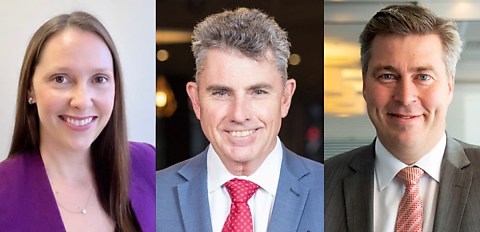NSW Treasurer Daniel Mookhey was the first to suggest that the state may increase the foreign tax surcharge as well as close a loophole that allows temporary residents to buy dwellings and then allow them to sit empty.
Premier Chris Minns confirmed that the policies are on the table as the state irons out the details of the next state budget, due out in June 2024.
No details on what a new foreign investor levy might look like are forthcoming from the Premier or Treasurer or even if it’s likely to go ahead, but the news nonetheless has drawn a strong reaction from the property and housing sectors.
Are taxes at odds with the need for housing?
The NSW executive director of the Property Council, Katie Stevenson, commented that the Treasurer was “proposing to create new obstacles for the property sector that will make developing in NSW even more difficult and less attractive”, at a time when the region is “in the midst of a housing crisis that is crippling our state”.
“You cannot expect us to build more homes than we’ve ever built before, while simultaneously creating an environment that is increasingly hostile to investment”, Stevenson said, referring to NSW’s commitment to contribute to the federal government’s aim of building 1.2 million new homes over five years, beginning this July.
“Whether capital comes from at home or overseas, we need to be removing barriers to the creation of homes in our state. The property industry cannot afford to be government’s scapegoat.”
Tim McKibbin, chief executive of the Real Estate Institute of NSW, also stated that increased foreign investor fees may have unfortunate ramifications on housing availability, particularly in the rental sector at a time when migration is at high levels.
“We know in New South Wales that we are growing our retail residential rental supply by about 700 properties a month. That data is from the bonds board. And we know that immigration is bringing in about 15,000 people into New South Wales each month,” McKibbin said.
“I think if you were to ask somebody that is looking for a rental property, do they care whether or not the investor is a foreigner, they would say, ‘No, I just need somewhere to live and I’m having a lot of difficulty finding that. So I really don’t care who owns it.’”
Similar to Stevenson, McKibbin said he “struggled to reconcile how the government can talk about housing affordability while loading the price of property with all these taxes and charges”.
Housing Industry Association chief economist Tim Reardon also argued that an increase in foreign investor taxes would dampen construction of new homes, particularly the high-density dwellings that the NSW government has specifically said it is targeting, but have shown waning development interest in recent months.
“Foreign investors are a crucial component to building new housing in Australia, especially the higher density living that is particularly important in periods of rapid migration,” Reardon said.
“Making homes more expensive is not an effective policy response to achieve a slowing in migration to NSW. It will however lead to a more inequitable housing market with renters bearing the highest burden,” he added, stating that the government has only to look to its recent past for evidence.
“NSW introduced additional stamp duty and land tax surcharges on foreign investors from 2017. These taxes are in addition to those taxes, fees and charges imposed on foreign investors by the Australian government. The result was an exodus of foreign investors and a dramatic decline in higher density home building.”
According to HIA, the state commenced construction on 23,653 multi-units in 2023 and 21,652 in 2022 – the two weakest years of apartment commencements since 2012.
“The more governments tax homes, the fewer homes will be built and the faster rents will increase,” he added.
Property in the spotlight to fund state’s emergency services
The argument against higher property taxes at a time of housing shortages is at the heart of the property industry’s stance on who should fund Fire and Rescue NSW, the NSW Rural Fire Service, and the NSW State Emergency Service.
The government announced this week that the emergency services levy “would be removed from insurance and applied instead to property”, as it opened a consultation process into how the levy should be applied to different property types and locations.
PCA’s Stevenson has been appointed to a stakeholder reference group to advise the NSW government on how to reform the way emergency services are funded in the state. The announcement this week appeared to blindside the body, which stated that it had entered into the discussion “on an understanding that no decisions had been made and everything was on the table to develop a fairer and more sustainable statewide system for funding our vital emergency services”.
The organisation holds that the need for emergency services is borne from a much wider range of incidents than those that relate to real estate and thus should not be the responsibility of property owners alone.
McKibbin similarly stated that he believes the money should come from “the stakeholder group in the community that has the most to gain by an effective emergency services. And that is insurance”.
Taken all together, Stevenson said it had been “a terrible week for industry, in which the Treasurer has sadly shown a reluctance to listen to property experts”.
“Now is the worst possible time to be proposing taxes and charges that will make housing more difficult to deliver, more expensive and drive much-needed investment interstate,” she added.
[RELATED: Homes to be built around 6 more NSW stations]
